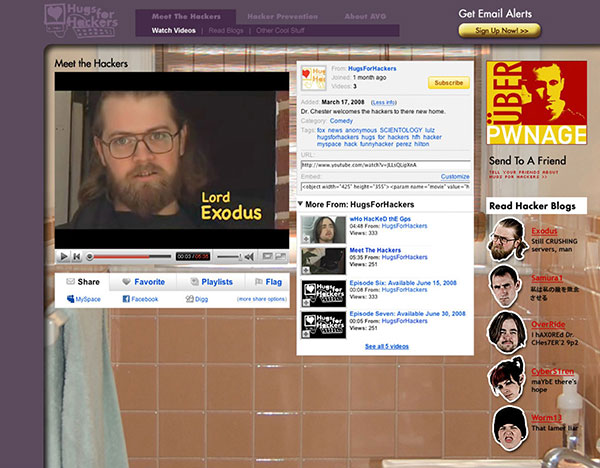
Jul
INTERVIEW WITH AN AMBITIOUS MARKETER. VOLUME 8
Tracy Wise / Global Marketing Department at W.L. Gore and Associates
Tracy is an experienced marketing leader with a strong career track record of using marketing insights to develop sound business strategies driving results and ROI by leveraging multichannel marketing including digital, social media, traditional and emergent formats. She has managed large product launches, organizational rebranding and optimization of marketing spends across marketing channels. In addition to W.L. Gore and Associates, her background includes marketing leadership roles with The Produce Marketing Association and AstraZeneca. Tracy holds an MBA in Business from Stanford University.
W.L. Gore & Associates is a global materials science company dedicated to transforming industries and improving lives. Since 1958, Gore has solved complex technical challenges in demanding environments — from outer space to the world’s highest peaks to the inner workings of the human body. With 9,500 Associates and a strong, team-oriented culture, Gore generates annual revenues of $3.5 billion.
Digitent: We talk about ambition in a number of ways but everybody has different ways of defining it. Can you tell us a little bit about what kind of role you feel ambition has played in your journey to becoming a marketing leader?
Tracy: I think there’s a little bit of ambition in every market leader. It’s just inherited. Being a marketer, you want your product to win. You want your service to win in the marketplace. So, from that perspective, I believe there’s a little bit of ambition in all of us. I’m not sure if I would label myself as “ambitious” but reality is, there is probably a level of ambition that’s almost required for market leaders to do the things that we have to do. You know, we have to be the best at capturing attention and mindshare and monitoring the market and relentlessly looking for anything that’s going to impact our ability to be first in line for our customers. So from that perspective, ambition has been a big part of shaping the journey for me in terms of being a market leader.
Digitent: That’s great. Within the marketing organizations that you’ve been with, what have been some of the ambitions that you’ve seen, have you established goals and, how well are able you to reach those goals?
Tracy: Yeah, that’s actually a good conversation because I think that when you use ambition strategically it actually can lead to some really good and thoughtful outcomes – sort of ambition with intention. So, not only in this role, but probably in my prior roles, I like to think of myself as a conscientious ambitious marketer if that’s a “thing,” and I think that’s important because using ambition to really help determine good outcomes, asking yourself questions like “will this lead to a better experience for my customers” or “will this decision make my company better” or “am I even being realistic about ambition relative to personal growth?” I think those are the ways that I’ve seen ambition play out in terms of helping organizations and individuals reach their goals.
Digitent: That’s interesting. You talked a little bit about individuals and that leads me to my next line of questioning about ambition and whether or not it is teachable. You’ve managed a lot of people – is ambition a teachable trait? And if not, what kind of traits do you look for or try to teach your teams in order to help them succeed?
Tracy: I think I would probably say that instead of using the word “teachable” it may be a “coachable.” So because I think there’s probably a little bit of ambition in everybody, I think the magic is really trying to figure out how to best tap into it. So, that’s one of the fun things about leading teams, you’re able to really connect to a person – a person’s inherent interest in a way that helps them to drive marketing results. I see this is as no different than maybe a coach tapping into natural ambition of an athlete. My husband’s a coach of a basketball team, on the high school level, and I think there’s definitely some parallels. Every athlete on the court may not necessarily be able to shoot a three-point shot or may not be the best defender, but there’s usually something that they’re very good at and very ambitious to do more of, or to learn more of. And that’s really no different than the marketing field. You see it happening with people who have a natural inclination or interest in being creative or being analytical and really trying to figure out how to tap into that part of an individual and helping them to use that to become a better marketer. And I think that’s how you connect those dots and leverage ambitious marketers.
Digitent: Would there be any sort of advice that you might give to a rising marketer, within your organization or in another, with respect to ambition?
Tracy: If you’re a rising marketer, I think it’s about trying to be strategic about being ambitious and using ambition. I would suggest that more ambition could be directed and intentional, as opposed to just ambition for any reason. How does my ambition and drive for the things I like to do in the marketing field match up with the goals of the company business unit that I serve, the product I serve, or with a customer that I’m trying to influence? How do you match that ambition in a way that can be very productive, a real intentional way? That was going to be my advice for a rising marketer who has ambition. It’s really about looking for that alignment with the organization.
Digitent: I know you’ve had a lot of different roles in B2B marketing organizations. Here at Digitent, we talk in terms of organizations undergoing what we call a digital transformation and about harnessing the data and the information that’s available to them. Do you measure success in your marketing organizations and or in your past and how has the digital world allowed you to better measure goals? Better measure “ambition” and you’re ambitious efforts to meet those goals?
Tracy: I think that it’s definitely more and more important that organizations are able to measure their marketing goals and marketing work and really trying to understand what’s attributable to the marketing effort. But our measures of success or outcome, they really differ based on the marketing initiatives, of course, but generally speaking we look at outcomes based on marketing plans and that’s been the discipline that I’ve exercised over the course my marketing career. So some goals are very universal and others may be very dependent or on the intention of the plan like leads generated or driving some type of online behavior. Most important I think is being very deliberate about the type of marketing outcomes that you’re looking to accomplish and then making sure you’re setting up the right metrics to marry to those outcomes. Metrics are incredibly important and we don’t have unlimited marketing dollars (as much as we’d like to have unlimited marketing dollars.) So, that investment really needs to be carefully planned. And I also think it’s important to determine how close marketers are with regards to the type of marketing work they’re trying to deliver for the business. What is it that you’re looking to do for the business? Is it that marketing has to drive top-line revenue? But that takes intentionality and agreement of the people who are stakeholders in the time and resources and then you can get to that granular level of what the numbers should be. Of course it is important to make sure that whatever the metrics are, there is a reasonable and meaningful way to measure and that you’re using right levers and channels to be able to get to those metrics so that you can see how well you’re doing or where you might need improvement, or where you may need to invest more dollars. I’m a big fan of the discipline of marketing and I think the metrics are a huge part of that. There are times when everything can’t be measured cleanly and sometimes we need proxies and a little bit of that gut check on certain things, but with where we are now particularly with digital expertise and digital measurement there certainly should be a clean and clear alignment with a metric plan.
Digitent: We find that sometimes not all of the stakeholders are in alignment. Data or information may reside elsewhere in an organization. We sometimes look at that is as a “barrier” or perhaps a hindrance to achieving what you as a marketing organization want to achieve. Do you have any examples of circumstances where there might have been barriers or hindrances to achieving you or your organization’s ambitions and you’ve ultimately overcame it?
Tracy: I think about some of the barriers honestly and sometimes it’s just a matter of looking in the mirror. I’m pretty self-reflective and sometimes a little too self-critical, but there are probably times when you should have been more ambitious in either taking a step forward or taking steps back. You’re down the path and maybe there’s misalignment in terms of expectations for marketing outcomes or stakeholder agreement. This usually happens somewhere further upstream and so really what that means is just being more conscientious about taking the time and having the right critical components to marketing upfront so that when you’re down the path and you know the investment is spent, people are looking around, looking at the results, people are very clear in terms of what the expectations were and hopefully the results you will share – whether or not the work did what it was intended to do or not. From my experience when there’s been a disconnect or something that didn’t align it usually happened from something that really wasn’t organized well upstream. One of hindrances to my success in terms of ambition is patience. That can also be universal around marketing and business organizations in general. Just having the discipline and taking the time and patience to ensure success. For example, years ago, I worked on a direct mail catalog business during the tipping point of digital marketing and e-commerce which was really not widespread yet. I’ve been classically trained in direct mail but I felt like my own ambition was wanting to move quickly to launch day. This speed probably prevented me from taking time to really understanding some of the marketing barriers. Skipping steps to get to the launch didn’t go as successfully as I’d hoped, but the learning from that exercise was big. We had a general understanding of the value proposition, but we didn’t really take the time to really segment well. We really didn’t get a chance to do as much market research as we probably should have regarding customer and audience. Or understanding those affected and how they behave and how they purchase. Fast forward and it’s very easy to look back and see where the missteps were. But sometimes when you’re in the midst of it, there are a lot of voices in the room and those things don’t always happen. So patience is one thing I’ve learned to make sure that we’re not sacrificing. I think patience is something universally marketers have to be able to practice.
Digitent: I think that’s great advice for those who seek to coach and talking about the discipline of marketing, the patience of marketing and obviously keeping the goal front and center on the way. We find that often times you lose sight of the forest through the trees as you start shifting goals.
Tracy: Absolutely and I was going to say we still live quarter to quarter and fortunately or unfortunately the digital fast pace access that we have now sometimes even perpetuates that more. But some of the fundamental, foundational practices haven’t really changed over the years in what will help fuel success. The digital tools that we have now should make that even easier to do but the need for patience and discipline is still universal.
Digitent: Tracy, this has been a really enlightening and great interview. I appreciate your taking the time. Is there anything you’d like to add about ambition yourself and for your marketing organization?
Tracy: Ambition you asked – is that a good word or a bad word? I think from a marketing perspective ambition is really a good word in marketers and certainly in market and for leadership. Being strategically and conscientiously oriented in the right way will go a long way in terms of driving success. So kudos to you guys for putting together this series because I think it’s a real good topic that marketers need to talk about and certainly to share with each other.





